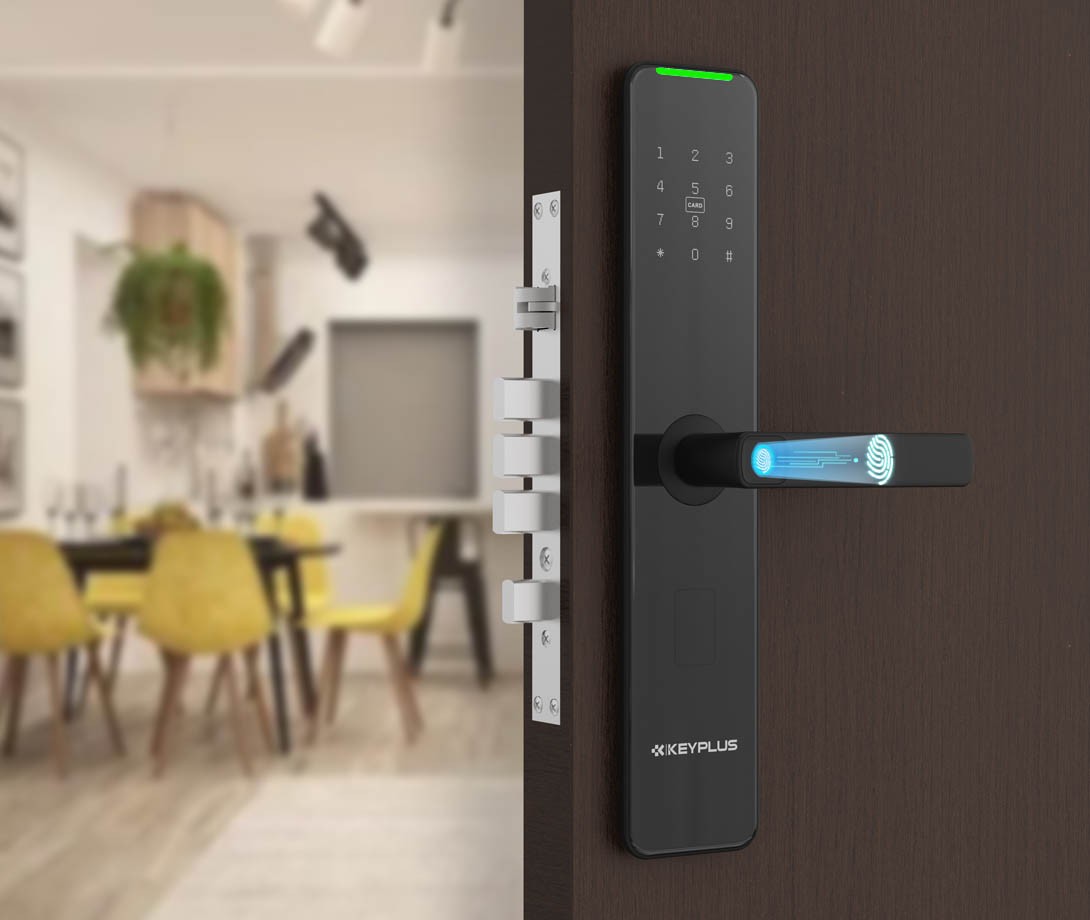Do Smart Locks Use Electricity? A Complete Guide to Power Sources and Reliability
Smart locks are becoming a standard feature in modern homes, offering keyless entry, remote access, and advanced security. But one common question many homeowners have is: Do smart locks use electricity?
The short answer is yes—smart locks require electricity to function, but they don’t need to be plugged into an outlet. Instead, most rely on batteries, with some high-end models offering alternative power options.
In this guide, we’ll cover:
How smart locks get power
Types of batteries used and how long they last
Backup power options in case of failure
What happens if the power runs out?
Tips for maintaining your smart lock’s power supply
By the end, you’ll know exactly how smart locks stay powered and whether they’re a reliable choice for your home.
1. How Do Smart Locks Use Electricity?
Unlike traditional mechanical locks, smart locks are electronic devices that require power for:
- Wireless connectivity (Bluetooth, Wi-Fi, or Zigbee)
- Motorized locking/unlocking mechanisms
- Keypad or touchscreen operation
- Security features (encryption, alarms, and access logs)
Primary Power Sources for Smart Locks
| Power Source | How It Works | |
|---|---|---|
| Replaceable Batteries | AA or AAA alkaline/lithium batteries (most common) | |
| Rechargeable Battery | Built-in lithium battery (charged via USB-C/micro-USB) | |
| Hardwired Connection | Directly wired to home’s electrical system (rare in homes) | |
| Kinetic Energy | Generates power from turning the handle (experimental) |
2. How Long Do Smart Lock Batteries Last?
Battery life depends on:
- Type of smart lock (Wi-Fi drains power faster than Bluetooth)
- Frequency of use
- Battery quality (lithium lasts longer than alkaline)
Estimated Battery Life by Lock Type
| Smart Lock Type | Battery Type | Estimated Lifespan |
|---|---|---|
| Basic Keypad Lock | 4× AA batteries | 1–2 years |
| Bluetooth Smart Lock | 2–4× AA batteries | 6–12 months |
| Wi-Fi Smart Lock | 4× AA batteries | 3–6 months |
| Fingerprint Smart Lock | Lithium batteries | 6–12 months |
| Rechargeable Smart Lock | Built-in battery | 3–6 months per charge |
Note: Locks with Wi-Fi, cameras, or constant activity tracking consume more power.
3. What Happens If a Smart Lock Loses Power?
A major concern for homeowners is: ”Will I be locked out if my smart lock dies?”
Fortunately, most smart locks have built-in safeguards:
A. Low-Battery Warnings
- Audible beeps
- Blinking LED lights
- Smartphone notifications (for connected locks)
B. Emergency Power Options
9V Battery Backup (many locks have a terminal for emergency power)
Physical Key Override (some models include a hidden keyhole)
USB Charging Port (for rechargeable locks)
C. Manual Override (Last Resort)
If the battery dies completely, some locks allow:
- Removing the battery cover to trigger a mechanical release
- Using a screwdriver to manually retract the bolt
4. Are There Smart Locks That Don’t Need Batteries?
Most smart locks do require batteries, but a few alternatives exist:
A. Hardwired Smart Locks
- Connected to home’s electrical wiring (like a doorbell camera)
- Used mostly in commercial buildings
B. Mechanical Keypad Locks (No Electricity Needed)
- No smart features (just a basic PIN code)
C. Solar-Powered Smart Locks (Emerging Tech)
- Still rare but may become more popular
5. Tips for Maximizing Battery Life
To avoid frequent battery changes:
Use lithium batteries (last longer than alkaline)
Disable unnecessary features (e.g., turn off Wi-Fi if not needed)
Update firmware regularly (improves energy efficiency)
Check battery levels monthly (via app or indicator lights)
Keep spare batteries near the lock
6. Pros and Cons of Electric Smart Locks
Advantages
No physical keys (can’t be lost or copied)
Remote access (lock/unlock from anywhere)
Temporary access codes (great for guests)
Activity logs (track who enters and exits)
Disadvantages
Batteries need replacement (every 3–24 months)
Wi-Fi models drain power faster
Risk of lockout if batteries die unexpectedly
7. Final Verdict: Are Smart Locks Reliable?
Yes—smart locks are reliable as long as you:
Choose a reputable brand
Monitor battery levels
Use backup power options
For most homeowners, the convenience and security benefits outweigh the need for occasional battery changes.
Would you switch to a smart lock, or do you prefer traditional keys? Share your thoughts in the comments!
Post time: Jun-06-2025


